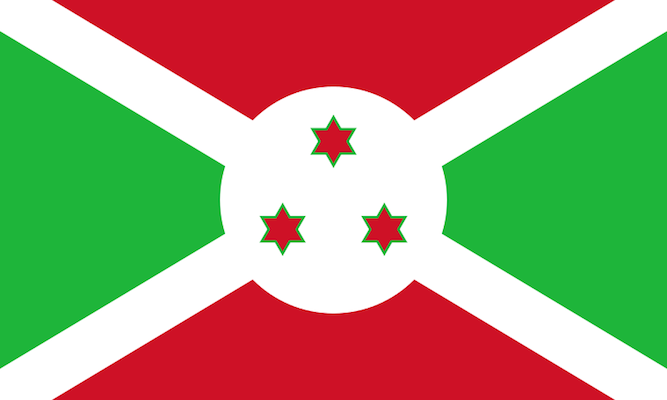Agence France-Presse: “Groups threatening Burundi security must be destroyed: president”
Burundi’s president on Wednesday called for groups that threaten national security to be “destroyed”, setting a combative and hardline tone as he begins a controversial third term in office.
In a speech read out on state media, Pierre Nkurunziza said young people would be given “patriotic, theoretical and practical training” to work alongside the central African nation’s security forces.
“These mixed security committees will be asked to work day and night so that groups which seek to only kill and upset security, especially inside Bujumbura, will be destroyed and so that we won’t be talking about them two months from now,” he said.
He urged “all people to rise up as one, and to work with security forces so that this promise can be kept”.
Burundi has a very low median age — half the population is aged 17 or younger, according to the CIA World Factbook — although a number of other sub-Saharan African countries actually have even younger populations. Just shy of 1 in 10 people in Burundi is a young man or boy in the 15-24 age bracket.
Well before the violent election cycle the President had essentially created paramilitary teen death squads by arming teenage members of his political party’s “youth wing,” known as the Imbonerakure. This was particularly troubling to many in light of its similarities with the Interahamwe Hutu militias in neighboring Rwanda during its 1994 genocide. (Burundi’s ruling CNDD-FDD party is the political arm of a Hutu rebel force from its own civil war period.) The new announcement from President Nkurunziza can be interpreted as a call to expand these Burundian youth militias significantly.
In early July, UN Human Rights High Commissioner Zeid Raad al-Hussein specifically condemned the Imbonerakure’s role in the political violence surrounding the election:
He said his office has documented dozens of killings in the past two months, most of them shootings of demonstrators and human rights defenders by the youth wing and security forces. Zeid urged the government to disarm the Imbonerakure youth wing of the ruling CNDD-FDD party immediately.
Earlier, at the end of May, leaders of the other four East African Community member countries (that is, not including Burundi) met in Tanzania to discuss the crisis and issued a statement also spotlighting the Imbonerakure:
“The summit, concerned at the impasse in Burundi, strongly calls for a long postponement of the elections not less than a month and a half,” said the statement on Sunday.
The leaders also called for the “disarmament of all armed youth groups” and for the “creation of conditions for the return of refugees”.
The United States suspended one of its largest security training programs in Africa in response to widespread violence by Burundian security forces.

Flag of Burundi


